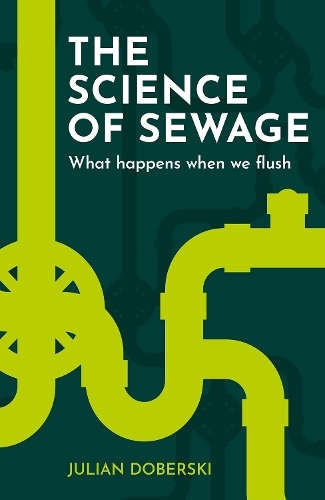
The Science of Sewage: What happens when we flush
(Paperback)
Publishing Details
The Science of Sewage: What happens when we flush
By (Author) Julian Doberski
Gemini Books Group Ltd
Pimpernel Press Ltd
28th January 2025
5th September 2024
United Kingdom
Classifications
General
Non Fiction
Waste treatment and disposal
Waste management
Environmental management
Water supply and treatment
Water industries
Ecological science, the Biosphere
628.3
Physical Properties
Paperback
144
Width 129mm, Height 198mm
Description
Most of us don't think about what happens when we flush - until raw sewage appears where it isn't wanted, on our beaches or pouring into rivers. Yet enormous quantities of offensive and hazardous organic waste and dirty water are flushed into the sewers every day. So how exactly is it all cleaned up
As Julian Doberski explains in this, his latest book, there's a certain biological magic in the cyclical process of turning sewage into river water, river water into drinking water and drinking water back into sewage. The Science of Sewage shines a light on this highly technical and complex operation.
Beginning with a look at how societies have attempted to deal with their waste - and avoid devastating waterborne diseases - throughout history, The Science of Sewage goes on to briefly review the current structure and ownership of the UK's 'water services'. The book then considers how the biological health of our natural water bodies is assessed, and the impact of sewage pollution on the finely balanced ecosystems within our rivers, lakes and coastal waters.
Julian Doberski explores the biological and technological options and challenges of turning domestic wastewater into effluent that can be safely discharged, revealing exactly what goes on in a sewage treatment works. This fascinating book then concludes by highlighting our collective responsibility - whether as citizens, public or private water service companies, or government and government regulatory bodies - for ensuring the quality of our water and the health of our environment.
Author Bio
Julian Doberski has degrees in Zoology (BSc Southampton), Forestry (MSc Oxford) and a PhD in biological control of insects using fungi (Cambridge). He has thirty years of teaching experience at Anglia Ruskin University in Cambridge (and its predecessor institutions) where he was a Principal Lecturer in Ecology. He has jointly published a resource pack for A level ecology students and a range of scientific research and science in education papers. He is currently retired and lives in Cambridgeshire.
